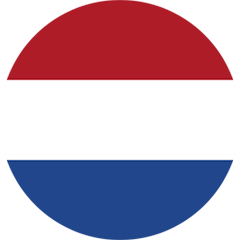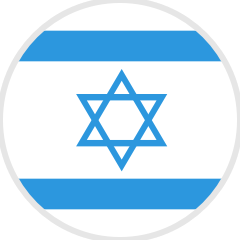My Next Language Project: Learn Hungarian
Today marks the end of Russian and the beginning of Hungarian. I plan to spend 6–12 months on the language, and I’m aiming for an intermediate, moderately comfortable level of speaking (and the ability to read a book and handle a dubbed American TV series [which hopefully exists! Haven’t yet checked])
Why Hungarian?
I’m choosing Hungarian for several reasons. In part, Hungarian is important to me because of my family. This is something of a joint project with my mother; my grandmother speaks Hungarian, and my mother had heard it/understood it as a child but was never able to speak it. We decided that we’d spend 2013 learning the language.
Hungarian has a few interesting features on a language-geek level:
- It’s going to be the first language I learn from *scratch* [More specifically, the first language whose sounds I hadn’t learned in advance].
- Of those sounds, it’s my first language that uses vowel length extensively, so I’ll learn how to hear vowel length (bot and bo:t would be different words).
- It’s my first non Indo-European language, so I don’t get any advantages from my other languages, except that languages in general are easier to learn once you have a few under your belt.
- It’s my first agglutinative language, meaning it builds words out of taking base words and adding chunks to give them cases or tenses or whatever. I kind of understand what that means, but it’ll be nice to really understand what that means.
- Because I’m starting from scratch, it gives me a real chance to gauge how well my methods work, now that they’re crystallizing into this book. (In my last few languages, I’ve been mixing together all sorts of techniques. Now I’m going to see if I’ve really found the ones that seem to work best, and whether I’ve put them together in the order that makes the most sense.)
- It’s going to be a fun project to do alongside the book. At this point, my new due date for the book is June 1st. As such, I’m going to be learning Hungarian at about the same rate as I’m writing the chapters. I’m arranging the book in stages (Chapter 3 is Pronunciation, which I’m doing now. Chapter 4 covers the early word/pronunciation/mnemonic foundations), and each stage should take me about a month to write and a month to learn.
First steps: Today, I spent 2–3 hours creating an Anki deck for the alphabet and the sounds. It took much longer than I had hoped, and while I think it was time well spent, I hope to find some way of speeding this process up for people because I think a lot of people who are less familiar with Anki would have a significantly harder time building a deck like this one.
Probably the best option would be for me to make pronunciation/alphabet decks for the most common 10–15 languages and sell them cheaply here.
While you get a lot from the deck-building process when you’re making cards for words (I think it’s essential, really), you don’t get as much bang for your buck when building this type of deck. You spend most of your time trying to find decent recordings of your alphabet, or figuring out how to type in IPA, or looking for example words for each letter and finding recordings of those.
It gets a bit tedious, and people could save a great deal of time if those resources were already gathered in one place. It’s possible, and it doesn’t take forever, but if such a deck existed for Hungarian, I would have learned more from my 2–3 hours than I did creating it.
Deck Details:
Every sound in the language has 3 cards:
- Question: What letter makes this sound? Front side: A recording of the letter [be] and the IPA of the sound it makes [b] Back side: The letter (“B”), an example word “bab” with a picture (beans) and recording
- Question: What sound does this letter make? Front side: The letter Back side: A recording of the letter [be], the IPA of the sound it makes [b], an example word “bab” with a picture (beans) and recording
- Question: What’s the mnemonic for this letter? Front side: The letter Back side: The example word “bab” with a picture (beans) and recording, a recording of the letter [be], the IPA of the sound it makes [b]
This will give me a fair bit of sound stimulation (two recordings per letter), connections between the letters and the sounds (example word for each letter), and visual/concrete connections for every letter (mnemonics).
It’s my first attempt to create a set of mnemonics for every phoneme in a language. I suspect it’ll come in handy later; if I have trouble remembering a word’s spelling, I can use one of the letter mnemonics to remind me about the first letter, or one of the vowels in it, etc. Hungarian has 40 sounds, so at the moment, I have 120 cards to learn this week.
Recordings: I found a lovely website with recordings of the letters in mp3 format and their IPA transcriptions here. I downloaded each letter and dragged the sound file into Anki.
For the example words, I used the Anki plugin that automatically finds sound examples for words. It uses Google text-to-speech, which I wouldn’t usually trust, but Hungarian is ridiculously phonetic, and the Google voice sounds very pleasant. I won’t stick with those recordings, but they’ll do for the next few days.
I’ve submitted all of my words over at Rhinospike.com, so I’ll get a native speaker recording and replace all of my Google text-to-speech recordings. I might also make another set of 2 cards for each of those recordings (Front side: Spelling, Back side: Sound file/IPA transcription, and then the same in reverse).
That’s it!
For more information on speeding up your Hungarian progress, check out our 11 expert tips for the fastest way to learn any language!
[shareaholic app="share_buttons" id="28313910"]
















